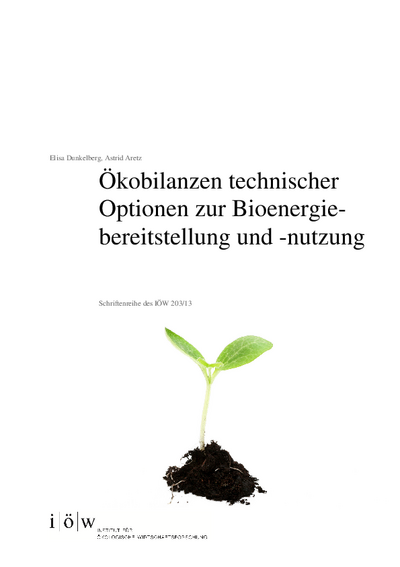Life Cycle Assessment of Bioenergy Systems
In Germany bioenergy production and consumption are politically. In recent years bioenergy however has been criticized as leading to ecological risks. This study presents life cycle assessments for existing bioenergy processes. The results prove that the usage of agricultural biomass such as corn and wheat for biogas production leads to negative ecological impacts such as eutrophication and acidification. The net greenhouse gas emissions saving in comparison to the usage of fossil energies is also only small; however, when residues such as manure or materials from landscape management are used as substrates for biogas production they lead to several positive ecological impacts. Residual forest wood or wood from short-rotation coppices used in co-generation show the highest greenhouse gas reduction potential among the investigated processes. Regions that have made bioenergy a priority thus should limit the usage of agricultural biomass for energy production to specific crops such as short-rotation coppices and floral perennials. Future challenges will require strategies to improve cascade utilization and gathering and efficient usage of residues.



